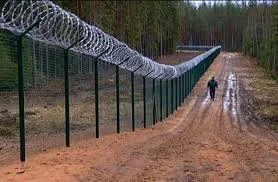How do I, as an outsider yet sympathetic observer of the Lausanne Movement, evaluate the Seoul Statement? I notice a number of important aspects in the area of mission theology and with respect to the practice of evangelisation.
Read MoreBesides the traditional right-wing parties (conservative, liberal), new political formations and alliances have emerged which are transforming the political landscape and the language we use to describe it. How do we respond from an Evangelical Christian and a missional perspective.
Read MoreWhen we talk about the role of Europe in the world in the past and today, we are tempted to see Europe as a whole, as a single centre of power and influence amidst the other world ‘powers that be’. This view however is quite mistaken.
Read MoreFaced with our overdependency on energy, we can now see more than ever the need to bring lifestyle and our economies in line with the ecological imperative of sustainability. What could our response be as Christians?
Read MoreIn this concise and very readable publication, Bruce Nicholls, one of the founders of the Theological Commission of the World Evangelical Alliance, gives a rapid overview of the issue of climate change and then concentrates on the Christian response.
Read MoreTracing the development of the Evangelical Commitment to a Simple Lifestyle from the Lausanne Congress of World Evangelisation in 1974
Read MoreSince the Russian invasion armies crossed the Ukrainian border, over three and a half million Ukrainian refugees have crossed several European borders, seeking refuge from the destruction of their country. Across Europe people manifest their solidarity with the plight of the people from that beleaguered country whose name, significantly, means ‘Border land’.
Read MoreThere are many factors affecting the outcomes of surveys such as the European Values Survey, European Social Studies (ESS) and the Pew Forum Research Reports. In this article we look at some of these factors, to help s understand the nuances of the religious landscape in Europe.
Read MoreDespite a plethora of material, aimed at helping churches and individual believers to respond to the pandemic crisis, there appears to be little focus, if any, on the theological – and missiological – implications that people can no longer ignore the possibility of death.
Read MoreOver the last few decades, we have been witnessing the persistence and even the resurgence of religious beliefs and practices in societies that had undergone a long process of secularisation.
Read MoreOne of the most striking aspects of the socioreligious context of Europe is the high proportion of so-called nominal Christians. These are people who are affiliated to a Church and/or identifying as ‘Christian’ in surveys.
Read MoreLooking from the inside, ‘we Europeans’ are much more aware of the mosaic of ethnic origins, languages, national and regional histories, political traditions, cultures, and lifestyles. Many of us are strongly attached to our particular identity, feeling ‘European’ only in a secondary or an accessory way.
Read More












